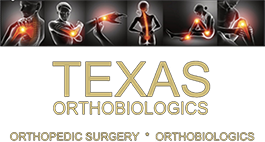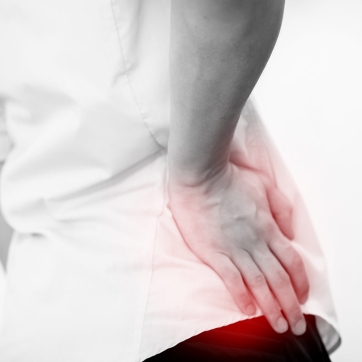When your hip is causing you pain and discomfort, you may find it difficult to walk, stand, or engage in other life activities. Occasional hip discomfort might not be cause for concern. But intense, chronic pain can significantly limit your overall functioning and may be a sign that something is seriously wrong.
But what causes hip pain, and when should be worried? If you do have chronic hip pain, is the only treatment option a total hip replacement? Fortunately, not! You may be a candidate for orthobiologics, which can address pain and weakness in your hips.
What is hip pain?
The hip is one of the body’s largest weight-bearing joints, formed by the acetabulum of the pelvis and the femur or thighbone. It’s a ball and socket joint with the head of the femur as the ball and the pelvic bone as the socket. The surface of the joint is coated with smooth cartilage, which is meant to cushion movement.
When you have hip pain, several causes are possible:
- Degenerative osteoarthritis — This is an age-related condition characterized by the breakdown of cartilage in the hip.
- Tendonitis — Also called hip flexor tendonitis, this is a painful irritation or inflammation of the hip’s tendons.
- Labral tear — A labral tear results when the cartilage covering the outer rim of the hip socket is damaged.
- Tendon tears and tendinosis — Degeneration or tears in the hip’s tendons can result from overuse or strain.
Hip pain isn’t always a sign that you need a hip replacement. Many sources of hip pain are manageable with minimally invasive treatment. But, if you wait, hip pain can impact more than just your hip. For example, a weakened hip can increase your risk of a fall. And, when you’re in constant pain, it may lead to issues like anxiety and depression.
Orthobiologics uses your body’s healing abilities to relieve hip pain
If you’re suffering from chronic hip pain, regenerative medicine therapies have the potential to provide new hope for relief without the need for major surgery. Orthobiologics use your body’s natural healing properties to stimulate the healing of damaged cartilage, bone, and tissue. It is also being used to reduce inflammation and promote new cell growth.
Several types of orthobiologic therapies are being used to treat hip pain:
- Platelet-rich plasma (PRP) — The patient’s own blood provides a concentrated solution of platelets, which contains plentiful amounts of proteins and growth factors to promote tissue regeneration, blood vessel formation, and reduced inflammation.
- Bone marrow aspiration concentrate (BMAC) — The patient’s own bone marrow provides cells containing materials that have the potential to promote tissue healing, reduce inflammation, and control pain.
Find out if you’re a candidate for orthobiologics for hip pain
If you have chronic hip pain, you owe it to yourself to explore all minimally invasive treatment options. Most osteoarthritis and hip tendon issues respond well to orthobiologic treatments. Factors such as the patient’s overall health and the degree of degeneration or injury can impact final outcomes.
Dr. Buford at Texas Orthobiologics is the leading authority in regenerative medicine in the Dallas/Fort Worth area. He is a board-certified orthopedic surgeon who knows how effective orthobiologics can be in surgeries as well as to relieve pain from various hip conditions.
Contact us today to schedule a consultation to find out if you are a candidate for orthobiologic treatment.








Post a comment
Your email address will not be published. Fields marked (*) are mandatory.